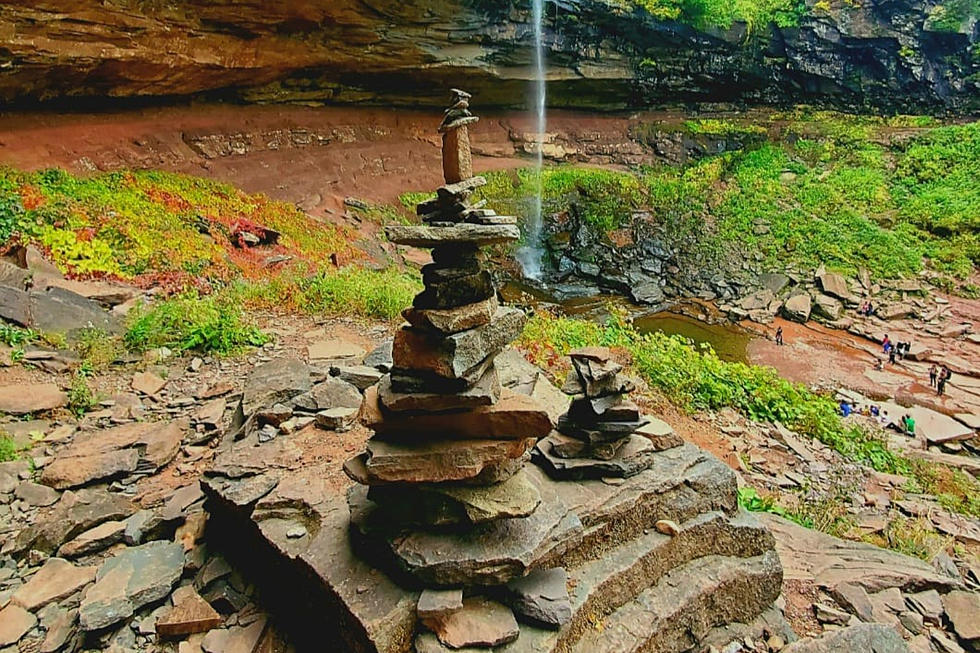
Why Stacking Rocks is Horrible for Hudson Valley Trails and Parks
Think those stacks of rocks are unique and fun? Think again.
You've probably seen more stacks of rocks than you can count. You know, those short and narrow stacks of river stones. Sometimes they're by the water, in water, or in a random spot in the woods. It appears there's no rhyme or reason to these stacks of rocks. Honestly, they look kind of cool! But what if I told you stacking rocks is horrible for the environment?
Stacks of rocks are different than rock cairns
Don't believe me? Well, I'll break it down for you. But trust me, a simple Google search can show you multiple reports of why rock stacking is bad. The Ausable River Association says rock stacking is bad for two reasons: disrupting the ecosystem and potentially putting hikers off the trail. They note that rock cairns are often used to guide hikers and people using trails and are different than those stacks of rocks that you see on Instagram. Rock cairns are created by wildlife and land management professionals and are not to be confused with stacks of rocks.
Rock stacking can destroy ecosystems
The stacks of rocks, or rock balancing, are actually really disruptive to the ecosystem. Some aquatic or amphibious animals lay eggs underneath these rocks. According to The Washington Post, some birds make their nests with rocks. Animals like newts, fish, and crabs all have habitats under or near rocks. You even open yourself to the potential of interacting with dangerous wildlife when you reach for rocks. Moving rocks can also negatively affect soil and vegetation.
Waterflow can be altered by rock stacking
Another reason you shouldn't stack rocks is that they can negatively alter the flow of water. Friends of the Smokies say that the act of stacking rocks in a river can make dams. These dams can then lead to chutes or pools of water within a stream.
Stacking rocks goes against the ideology of Leave No Trace
When you see a stack of rocks, you know an animal didn't do that. It's clearly man-made. Leave No Trace is the idea that you leave nature the way you found it: untouched. No trash is left behind, no animals or plants are moved or taken, and no rocks are stacked. The Ausable River Association says marking nature with your own rock stack goes against Leave No Trace ethics.
The 25 Absolute Best Hikes in the Hudson Valley
23 Pictures That Show the Beauty of Minnewaska
More From WEOK



![El DEC del estado de Nueva York incauta dos pitones grandes [Fotos]](http://townsquare.media/site/705/files/2023/09/attachment-RS15126_534456130-2.jpg?w=980&q=75)






